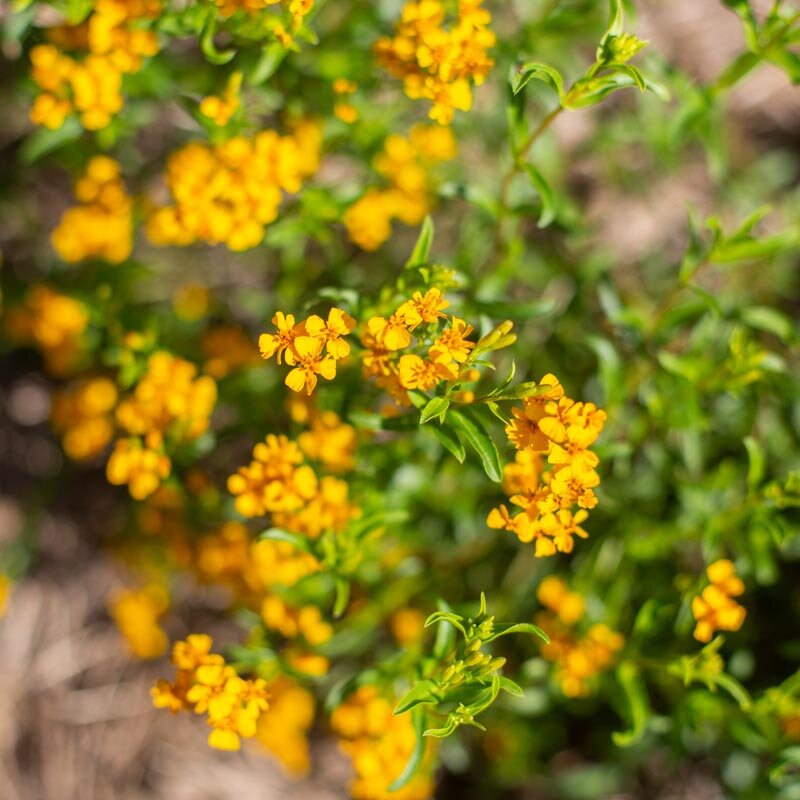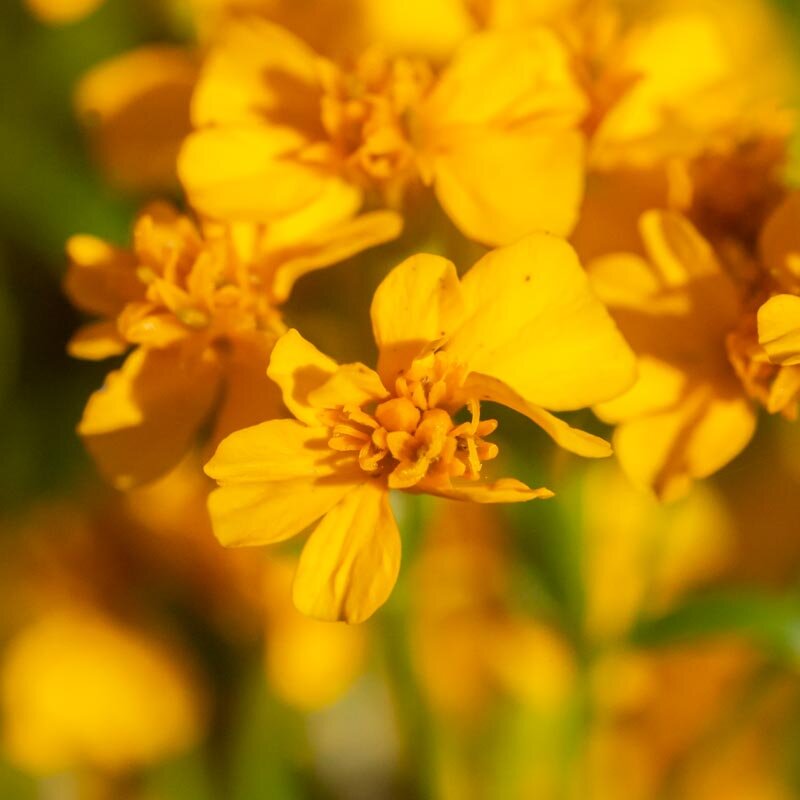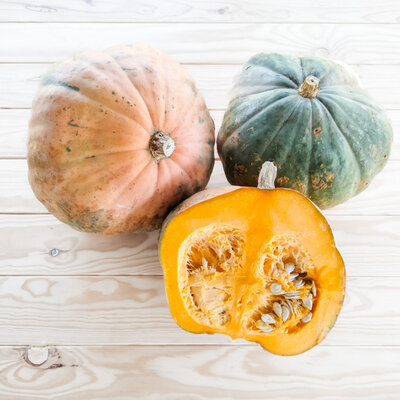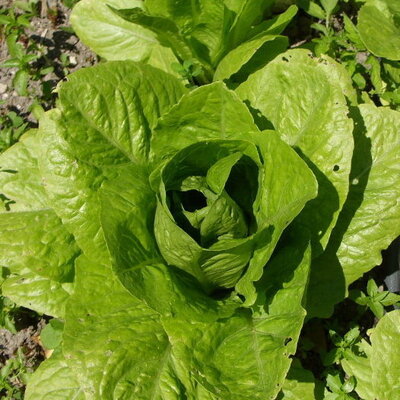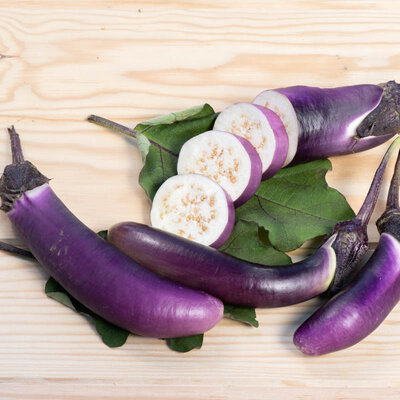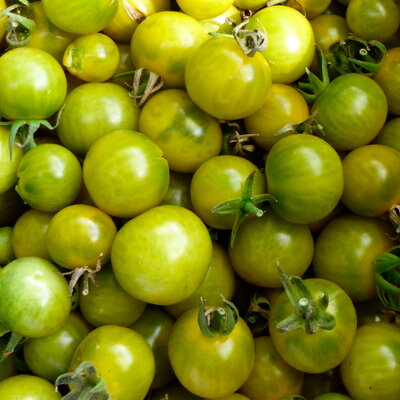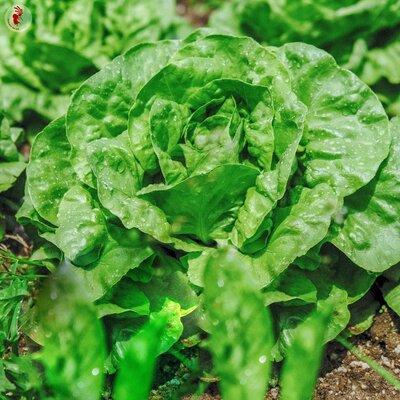Sweet Mace / Yauhtli - Tagetes
This species, generally an annual in our climate, produces upright stems 30 to 40 cm high. They bear an abundance of small, orangey-yellow flowers with a powerful fragrance, and foliage with an aniseed-like taste akin to tarragon.
Also known as shiny Tagetes.
Carefully harvested flower by flower, these seeds are very delicate to sort. So, the presence of small pieces of waste in the bag is normal and in no way hinders germination!
To discover on the Kokopelli blog: "Tagetes: medicinal, aphrodisiac and visionary plants."
These products may also be of interest to you
in the ground, in bucket
Sow in trays under a light shelter, at a temperature of around 20°C, 4 weeks before planting. Transplant after the last frosts, 15 cm apart in all directions. Alternatively, sow lightly, directly in situ, in sufficiently warmed soil, keeping only the most vigorous plants every 15 cm.
March, April, May
April, May, June
June, July, August, September, October
in the ground, in pot
sunny
low
humus, potting soil, clayey, limestone
drained, reheated
Tagetes lucida
mid-season
200 seeds
Yellow
fragrance, edible
From 30 to 40 cm
cut
Mexico
This species, native to Mexico, is also known as "Shiny Tagetes". The Aztecs called it "yauhtli", the Dark One, in "Nahuatl" - one of the 30 or so languages of the Uro-Aztec family stretching from Idaho to El Salvador. According to Montignac (1996), Hernan Cortez brought back a cocoa recipe around 1528 containing Tagetes lucida. According to ethnobotanists Christian Ratsch and Claudia Müller-Ebeling, virtually all the ingredients traditionally used in the recipe for the cocoa beverage are plants commonly used as aphrodisiacs or entheogens: Tagetes lucida, chillies (Capsicum sp.), Vanilla platifolia, Piper angustifolium, Pimenta dioica and the psilocybe mushroom "Teonanacatl". In pre-Columbian Mayan art, erect monkeys are often depicted smoking cigarettes or holding a cocoa plant - a reference to their aphrodisiac properties and shamanic lineage. The two ethnobotanists mentioned above also indicate that the Aztecs included the following species in their cocoa beverage: Quararibea funebris, Biwa orellana, Cymbopetalum penduliflorum, Solandra sp, Pimenta officinalis and Calliandra anomala.
Among the Mayans of the Mexican highlands, Tagetes lucida grows at altitudes ranging from 1,000 to 2,700 meters. It is one of the major plants in their pharmacopoeia and is used primarily to treat abdominal pain, epigastric pain, diarrhea, mental disorders, rheumatism and arthritis. It is mainly the flowering tops that are used, but sometimes also the roots. According to numerous authors, this species has antitussive, antispasmodic, analgesic, emmenagogic, digestive, febrifuge, uterotonic and entheogenic medicinal properties. Elois Ann Berlin, author of "Medical Ethnobiology of the Highland Maya of Chiapas. Mexico", a magnificent work on Mayan ethno-medicine, has herself demonstrated, in her laboratory, the activity of an alcoholic mother tincture of Tagetes lucida flowers against Staphylococcus aureus, Escherichia coli and Candida albicans. The same activity was induced by the roots, leaves and stems and, in both cases, considerably potentiated by exposure to UV light, indicating the presence of phototoxic compounds. Among the Huichols of Mexico, "Tagetes lucida has been smoked - as an aphrodisiac - since Spanish colonial times, either pure or in a smoking mixture. The dried flowering tops and leaves are smoked in cigarettes made from corn spathe. The Huichols of the Sierra Madre call Tagetes lucida either tumutsali or yauhtli, and smoke this plant either pure or in a mixture with the tobacco species Nicotiana rustica. This mixture is often used in conjunction with peyote or tesgüino (a corn beer made by the Tarahumaras) or nawa (another beer) or ci (a tequila). See Xochi's article on the Kokopelli blog. Tagetes: medicinal, ap.hrodisiac and visionary plants.



